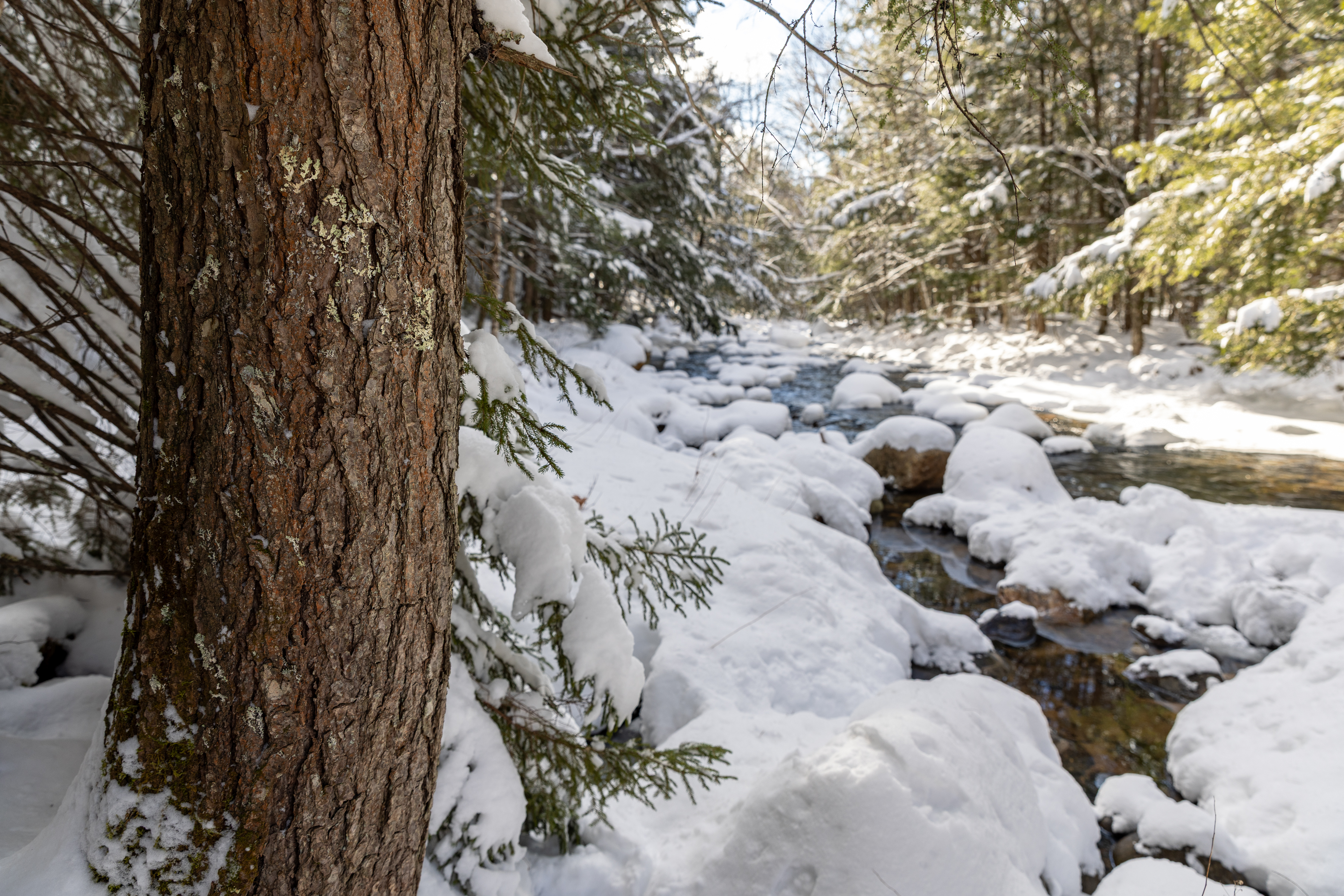The Forest Society owns and manages 173 Forest Reservations located in more than 100 different New Hampshire towns. The first permanent reservation, Lost River in Woodstock, was acquired a century ago in 1912 and we still own it today.
That a private, non-profit land trust owns conserved land probably doesn’t seem remarkable to us in 2012 given that there are some 1700 land trusts in the country today. But 100 years ago such a thing was a new and untested idea. The Forest Society was founded in 1901 to build support for the establishment of what we know today as the White Mountain National Forest. In 1911, when the Weeks Act was passed in order to facilitate exactly that, founders like former Gov. Frank West Rollins and others could have chosen to fold up their tents and go home.
Instead they chose to buy Lost River. And in doing so they helped launch a century of forest conservation.
Lost River was likely a target for several reasons. First and foremost, it is truly a remarkable and unusual place. If you haven’t been, you should go there.
It was discovered by the Jackman brothers in 1852, who were seeking out a good fishing spot in what is now known as Kinsman Notch. One of the two fell through a hole hidden by a blanket of moss and was deposited fifteen feet below hip-deep in a pool of water. The Jackman boys had found an underground ‘lost river’ that winds under, over and through a large boulders, like milk poured over a cereal bowl of spoonsize shredded wheat.
The boulders had been left behind by the glaciers 12,000 years beforehand, and over that period the spinning waters have carved potholes and throughways as they raced to their way down the mountain. The resulting ‘boulder caves’ make for a wonderland of exploration and imagination.
It wasn’t long before the Jackmans began bringing others to see the ‘lost river’ and its boulder caves. Tourism in the White Mountains was ascending in the late 19th century, and being taken to see a wild and wooly secret place was worth paying for.
Which brings us to a second reason the Forest Society sought to conserve Lost River. Then, as now, they recognized that one of the best ways to convince people to value New Hampshire’s natural landscape is to get them out in it. Lost River became a focal point for outdoor education (for many years the Forest Society ran a teacher’s conservation camp there).
Thousands of kids, many from urban and suburban locales vacationing in New Hampshire, have discovered a love for the outdoors through a visit to Lost River. Perhaps some even embraced a strong conservation ethic as a result.
With names to the rock formations, like the Cave of Odin, Center of the Earth, the Cave of Silence, the Guillotine and the Lemon Squeezer, this is a place that rekindles our sense of play no matter how old we are. This is a place where children can for a few hours escape the web of our digital age and re-discover the lost river of their own imagination.
Of course it’s also true that visitors to Lost River have been willing to pay for the privilege and ease of being led by one of the Lost River guides along the boardwalks that wind from boulder cave to boulder cave. The Forest Society managed Lost River for many years (Charles Kimball of Thornton worked there every summer for more than 40 years), and today the gorge is managed by White Mountain Attractions under a lease agreement that generates revenue that supports our conservation mission.
But there’s still another reason that Lost River might have represented an ideal first permanent Forest Reservation for the early members of the Forest Society. It is located just a few miles from Lincoln, which in 1912 was the center of operations for timber baron J.E. Henry. Henry, fairly or unfairly, was held up as being responsible for the scalping of the forests of the White Mountains, causing flooding, fires and scenic devastation. It could not have escaped Frank Rollins, or his brother Montgomery who donated the Rollins Shelter (which remains at Lost River today), or paid staffer Philip Ayres, that they would be setting up shop just up the slope from Henry’s sawmills.
Jack Savage is the editor of Forest Notes magazine, the quarterly magazine of the Society for the Protection of New Hampshire Forests. He can be reached at jsavage@forestsociety.org. For more information about visiting Lost River, go to www.findlostriver.com
